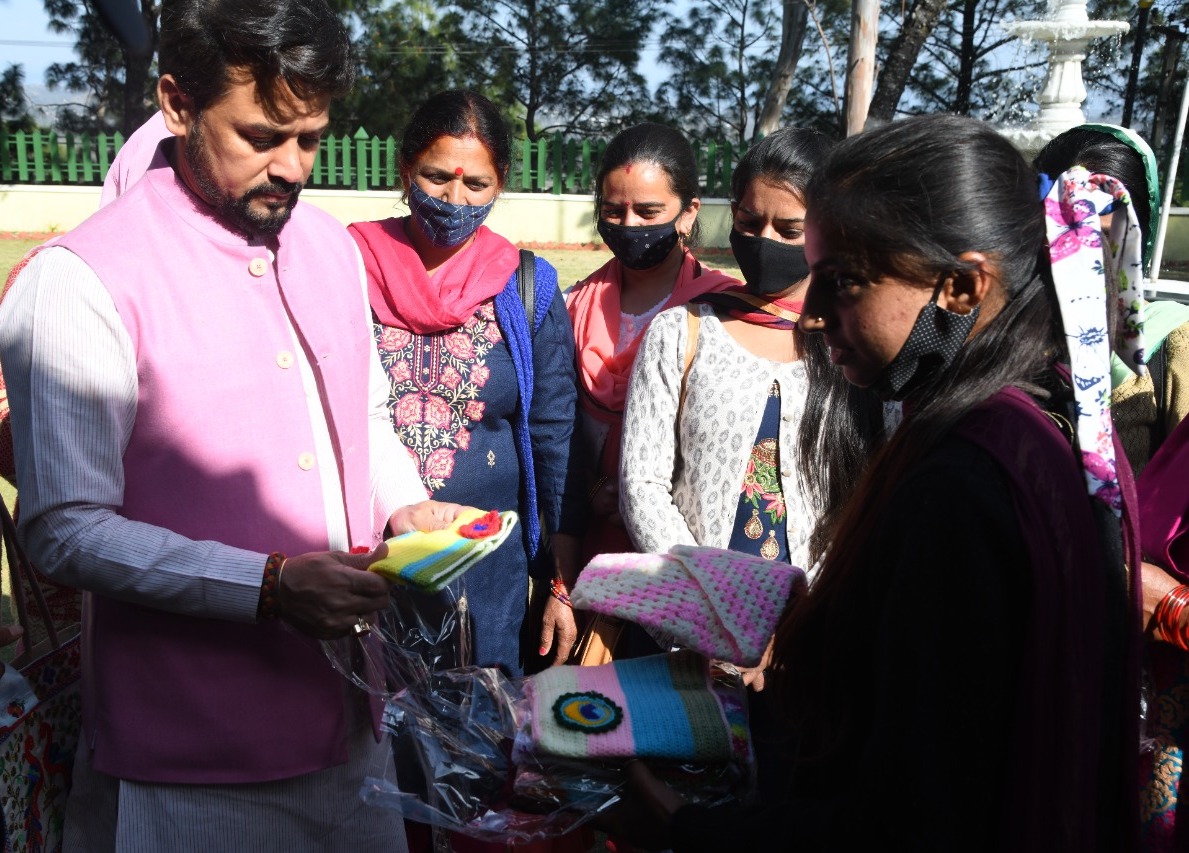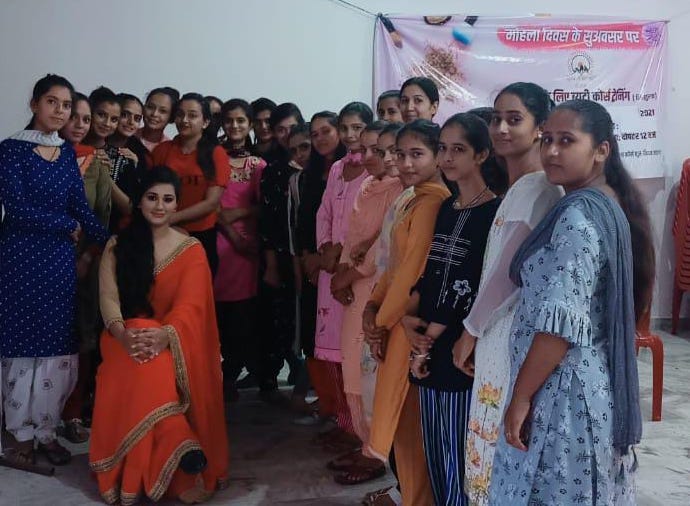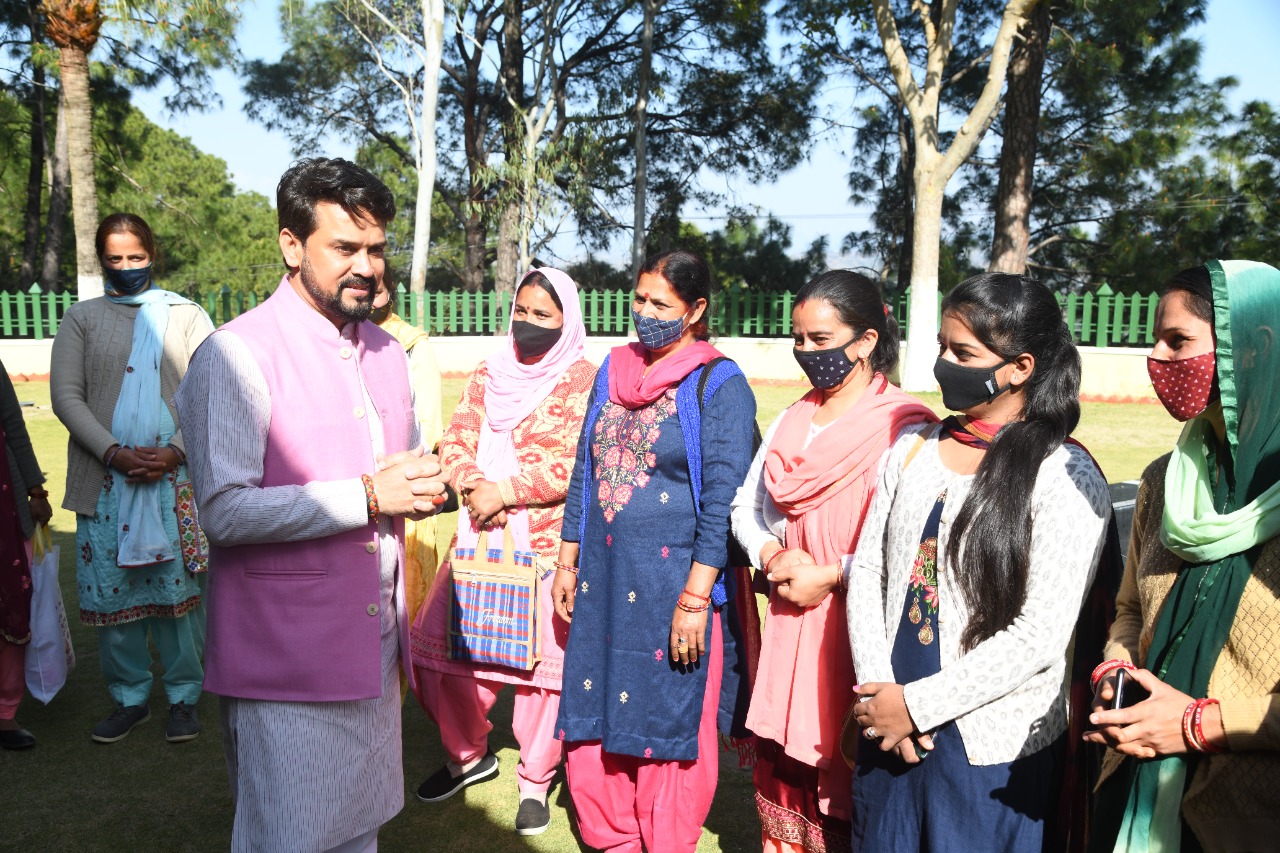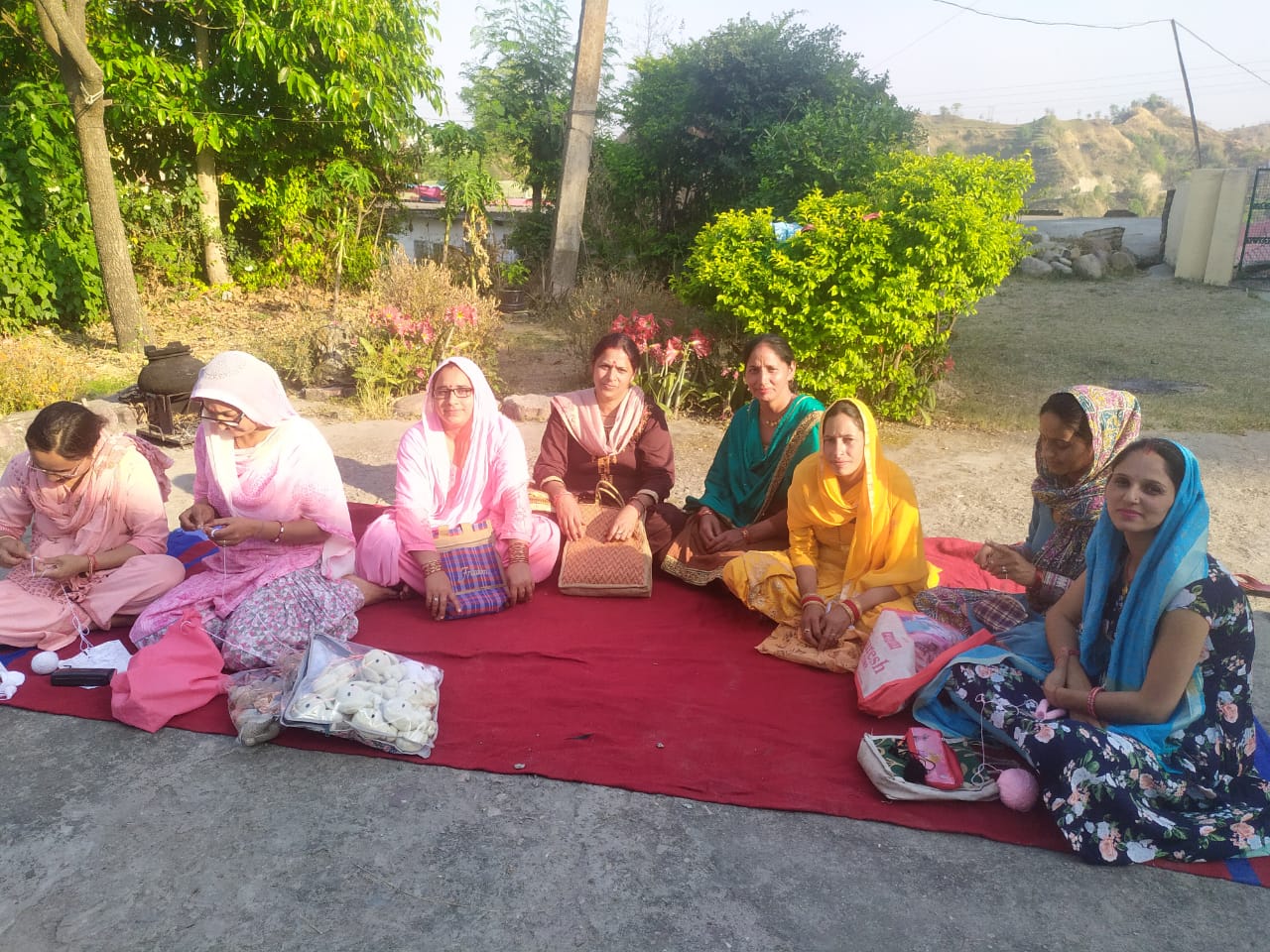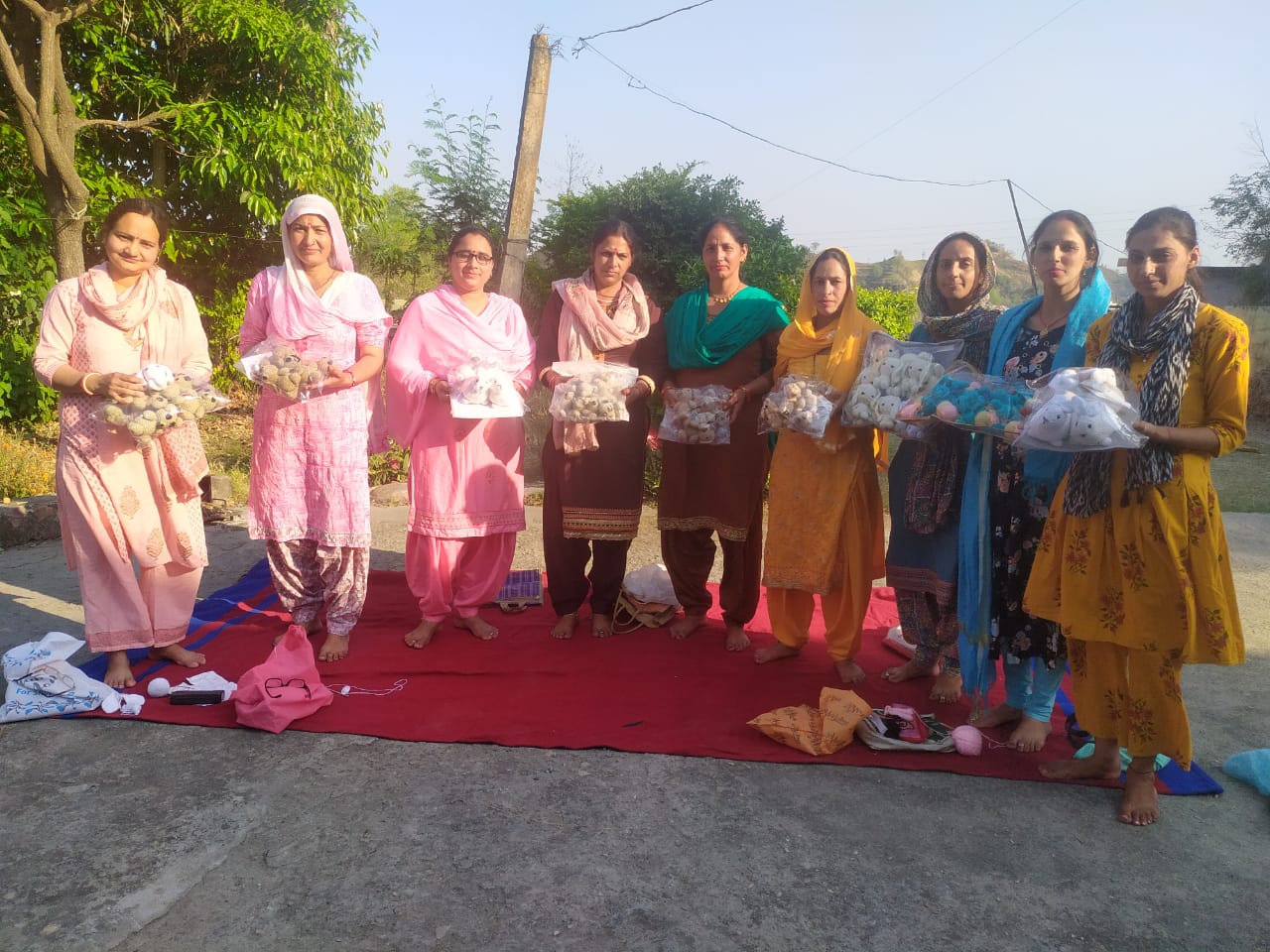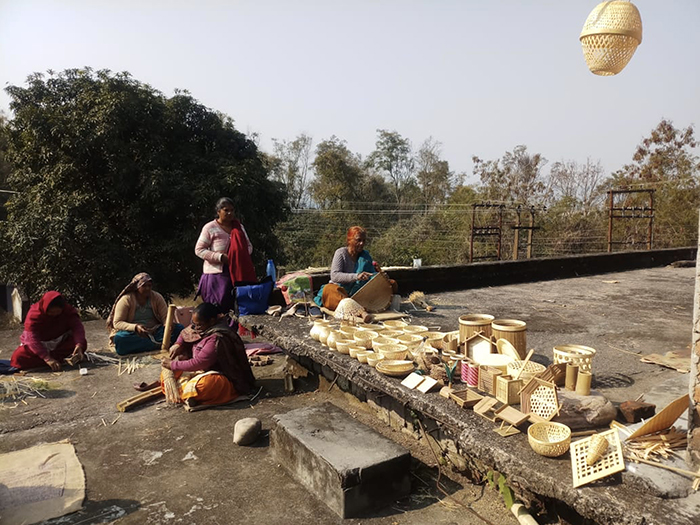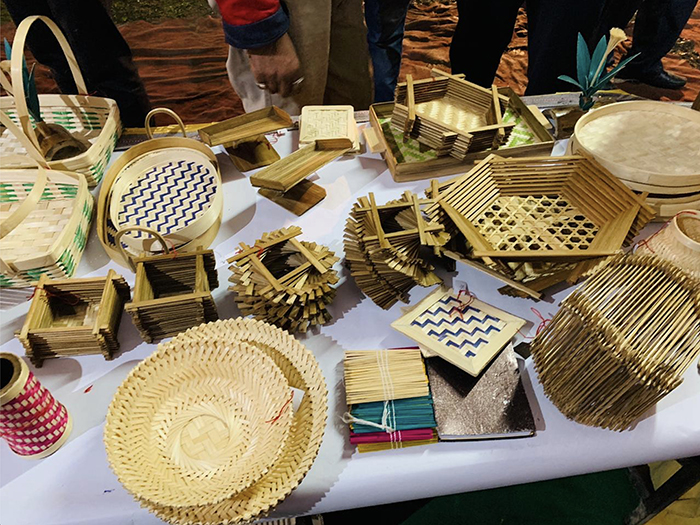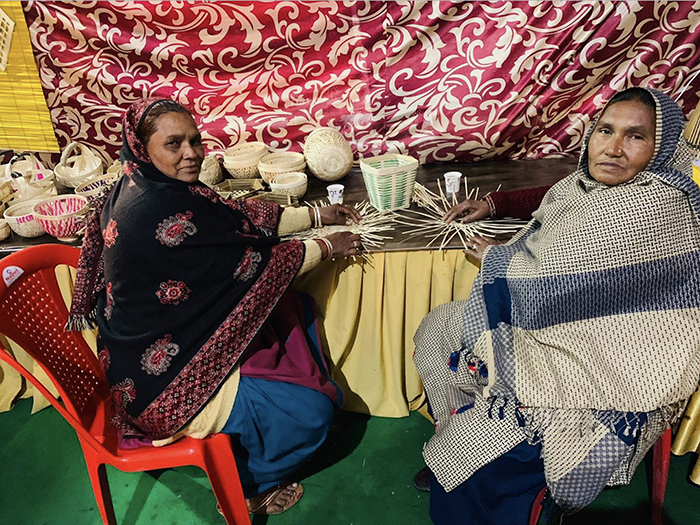Hunar Se Shikhar


Mahatma Gandhi once said, “Train a man and you train an individual; train a woman and you build a nation.” For her self-confidence to step out and maintain high self-esteem: While juggling between roles, her well-being & happiness can’t be compromised. It is important to help her prioritize herself. And keeping the same in mind, we undertake Beauty & Wellness Programmes for Women, across age groups.


The underlying objective is to inculcate a sense of self-confidence and allow them to pursue jobs while promoting self-employment opportunities. We have so far trained 4,500+ women and counting, to ensure that every woman becomes confident, self-reliant, financially independent and thus increasing their participation in society.
These women have gone ahead and started their journey towards self-reliance, financial independence, and above all a significant voice in their society.
The establishment of the 100% Biodegradable Sanitary Pad Production Unit in Hamirpur, under Hon’ble Union Minister Sh. Anurag Singh Thakur marks a significant milestone in women’s empowerment and health. Situated in Narsin Panchayat, the unit has provided sustainable income to a group of five women. Its location within the community has effectively dismantled societal taboos surrounding menstruation, empowering the local women to advocate menstrual hygiene across households.
Managed entirely by a dedicated team of women, the unit oversees the production, packaging, stock-keeping, maintenance, and marketing of biodegradable sanitary pads. It serves as a transformative hub, known locally as the Nari-Shakti Kendra, fostering women’s empowerment through economic independence and health advocacy.


Currently, the team actively engages in raising awareness about menstrual health and promoting the use of eco-friendly sanitary napkins. To expand its impact, free distribution initiatives are underway to introduce more women to these sustainable alternatives, supported by collaboration with district authorities, police, women’s organizations, schools, healthcare workers, panchayat leaders, community volunteers, and social media influencers.
Through seminars and widespread sensitization efforts, the initiative aims to empower women with knowledge and choices, ensuring a healthier and more environmentally conscious future for all.
Mushroom cultivation holds significant promise in India and other developing nations due to the accessibility of affordable raw materials required for this practice. It contributes directly to livelihood improvement through economic, nutritional, and medicinal avenues. Globally, China leads mushroom production, largely driven by community-based farming and diversification efforts. In India, diverse climatic conditions and ample agricultural waste support the cultivation of various mushroom types across temperate, tropical, and sub-tropical regions.
The trade-in of cultivated mushrooms provides a vital income source, particularly significant for rural women. Recent years have seen a surge in commercial activities related to dietary supplements and functional foods, with medicinal fungi traditionally used in Chinese medicine gaining prominence. Varieties like Shiitake and Ganoderma command premium prices, up to six times higher than locally grown mushrooms such as button and oyster varieties in Himachal Pradesh.
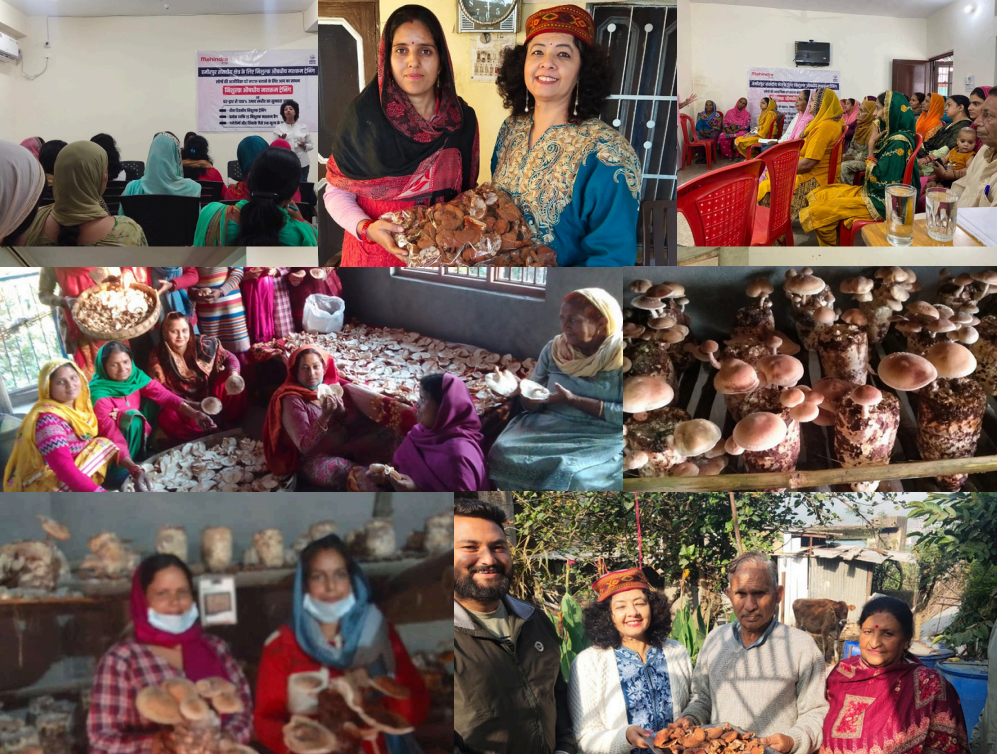

Mushroom cultivation offers an attractive proposition for both rural farmers and peri-urban dwellers as it does not require extensive land, can be managed part-time, and demands minimal upkeep. Beyond economic benefits, it supports sustainability by recycling organic matter as fertilizer, thereby enhancing agricultural systems. Through income generation and improved nutrition, mushroom cultivation strengthens livelihoods, reduces vulnerability to economic shocks, and fosters community resilience.
To address the challenge of market linkage, we ensure a 100% buyback mechanism directly from farmers, complemented by comprehensive training programs. Over 1,000 women have been trained in cultivating medicinal mushrooms like Ganoderma and Shiitake, guided by industry experts in scientific methods, disease management, and harvesting techniques. Women farmers receive ongoing support to optimize growth conditions, aided by digital monitoring tools for temperature and humidity.
Post-harvest, the substrate bags are repurposed as organic manure or fuel, promoting sustainable practices. This micro-enterprise model empowers women farmers to elevate their economic status locally, transitioning from small-scale farmers to Agri entrepreneurs. Plans include expanding production and diversifying products such as pickles, cookies, soups, and protein powders, addressing nutritional deficiencies, and enhancing income streams.
Continued training and assistance in marketing and government scheme awareness are pivotal for scaling operations and ensuring sustainable growth. Ultimately, this initiative aims to establish a thriving network of mushroom-based enterprises, positioning the region as a competitive hub for medicinal and exotic mushrooms, and contributing to economic development and nutritional well-being in rural communities.

Women hailing from humble socio-economic backgrounds were awarded with sewing machines to contribute towards their financial stability. With this intervention, each woman has been able to earn an additional source of income to the tune of Rs. 8,000 – Rs. 10,000 per month.

3 handloom units across locations have employed over 50 women and have contributed by adding Rs. 5,000 per month, per woman. With an increased skill set, the women can increase their income up to Rs. 8,000- 10,000 per month.

5 groups, each group having 30 women, have been provided paper plate-making machines along with raw materials, free of cost. Youth have been entrusted with the task of supporting these women in marketing these products. Each group can earn Rs. 30,000 – 40,000 per month through this intervention
